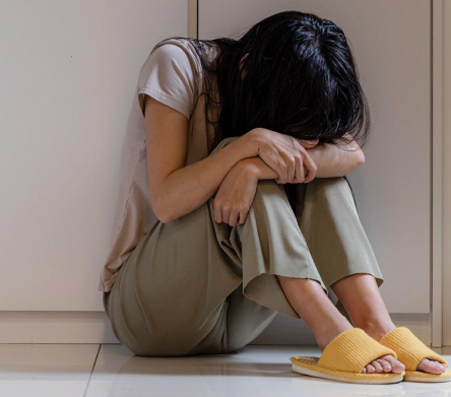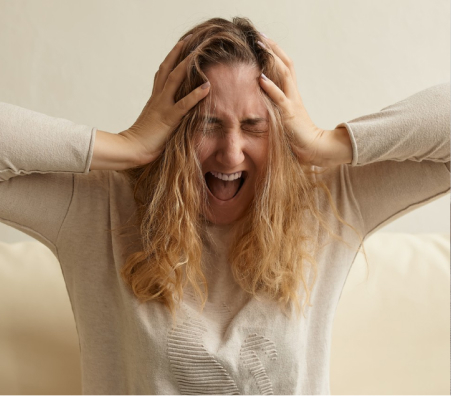The co-occurrence of seasonal affective disorder and addiction in a country like Washington is a relatively frequent phenomenon. Recurring depression symptoms due to poor Washington´s weather can often create an impulse to self-medicate in order to tame feelings like sadness and worry. Even when self-medicating with over-the-counter medicine, if you do so without consulting a professional, you are risking substance abuse and addiction.
With around 10 million US citizens experiencing seasonal affective disorder and the risk increasing with fewer sunny days or with the change of seasons, this mental health problem is not one to ignore. Unfortunately, seasonal affective disorder is often perceived as a passing state that one should not worry about. This leads to a lack of diagnosis and proper treatment.
Both seasonal affective disorder and substance abuse are treatable, and dual diagnosis centers are most effective when addressing comorbid mental states. We at We Level Up Washington, one of the leading mental health hospitals in Washington State, have specialized in dual diagnosis treatment and can not only address co-occurring issues but also educate you on how seasonal affective disorder leads to addiction in order to prevent it.
Skip To:
Understanding Seasonal Affective Disorder (SAD) and Its Impact in Washington
Seasonal affective disorder (SAD) refers to a recurrent major depressive disorder with a seasonal pattern. It begins and ends at about the same time every year. For most people, symptoms of SAD manifest in the fall and winter and often resolve during the spring and summer months. It´s assumed that shorter days and less daylight can trigger chemical changes in the brain, leading to depression symptoms.

Although primarily associated with the colder, darker months of winter, the transition into spring can also trigger mood changes in some people. As winter gives way to spring, the increase in daylight and shifts in weather patterns can disrupt internal biological clocks, leading to feelings of:
- Anxiety
- Irritability
- Lethargy
This form of SAD, though less common than its winter counterpart, impacts people through a different set of symptoms, such as:
- Insomnia
- Weight loss
- A heightened state of agitation
Unlike the moodiness many people feel on a rainy or especially cold day, SAD affects your daily life and the way you think and feel. SAD symptoms are similar to major depression symptoms and can vary from mild to severe.
Get Help. Get Better. Get Your Life Back.
Searching for Accredited Dual Diagnosis Mental Health Centers Near You?
Even if therapy failed previously, or are in the middle of a difficult crisis, we stand ready to support you. Our trusted behavioral health specialists will not give up on you. When you feel ready or just want someone to speak to about counseling alternatives to change your life call us. Even if we cannot assist you, we will lead you to wherever you can get support. There is no obligation. Call our hotline today.
FREE 24/7 Dual Diagnosis Mental Health Services HotlineAccording to the American Psychiatric Association (APA), these are the symptoms of SAD:
- Feeling sad
- Losing interest in activities that used to be enjoyable
- Having difficulties with thinking, concentrating, or decision-making
- Feeling guilty or worthless
- Experiencing changes in appetite (usually eating more)
- Experiencing changes in sleep (typically sleeping more)
- Increasing purposeless physical activity (e.g., pacing) or having slowed movements or speech
- Lacking energy or experiencing increased fatigue
- Having suicidal thought
Around 5% of adults in the U.S. experience SAD, and Washington State is ranked 11th highest for the number of people who experience depression symptoms (16.7%) in the winter.
SAD is not the only potential consequence of a lack of sunlight. Other physiological and psychological effects of reduced sunlight exposure include a lack of vitamin D that can lead to problems with bones, such as osteoporosis, blood pressure issues, moodiness, and a lower quality of sleep. Most importantly, reduced sunlight exposure results in lower levels of serotonin, which is considered a risk factor for depression.

Seasonal Affective Disorder and Substance Abuse Link
The Washington climate during the fall and winter months is such that people tend to stay inside their homes, resulting in a lack of exposure to natural sunlight, a lack of fresh air, and a disruption in our circadian rhythm. Consequently, sleep patterns are disturbed, and negative feelings are becoming prevalent.
To address them, people might develop unhealthy coping mechanisms. It is not unusual for a person to try to resolve their issues by self-medicating. For someone feeling low, using a substance that can lift their mood seems like a logical step. Someone having issues sleeping might reach out for a depressant. Unfortunately, self-medication lacks control and can easily slip into substance abuse. This is why seasonal affective disorder and addiction often go hand-in-hand.
End the Emotional Pain. Get Your Life Back.
Feeling Depressed, Anxious or Struggling with Mental Health Illness? Get Safe Comfortable Mental Health Dual Diagnosis High-Quality Therapy From Counselors That Care. Begin Your Recovery Now.
Hotline: (509) 348-4077

How Seasonal Affective Disorder Leads to Addiction
Studies have so far discovered a few patterns of seasonal affective disorder and substance abuse. Some people might turn to substances like alcohol, drugs, or certain behaviors as a form of self-medication. The emotional and physical symptoms of SAD, such as depression, anxiety, and fatigue, can be overwhelming, leading some to seek immediate relief.
According to research, binge eating is frequently associated with SAD, which raises the risk of eating disorders. Alcohol abuse and stimulant use (such as cocaine) are two other prevalent substance disorders tied to the SAD. These unhealthful patterns can explain how seasonal affective disorder leads to addiction.
Unfortunately, substances that initially seem to alleviate these symptoms can quickly lead to dependency and addiction, creating a cycle that’s difficult to break without professional help.
Risks and Challenges of Seasonal Affective Disorder and Addiction in Washington
Washington residents are at higher risk of developing SAD. This comes as no surprise, knowing that the most probable cause of SAD is lack of sunlight and that Washington has the second lowest amount of daylight hours during the winter (an average of fewer than 10 and a half hours per day) and the second lowest amount of daily sunshine throughout the winter months (34.9%).
Lack of sunlight is related to serotonin underproduction and melatonin overproduction, both of which can result in symptoms of depression and often poor sleeping patterns. The risk of developing SAD due to the Washington climate is even higher if you recently moved from a sunnier place.
Data acquired during the pandemic, when people in Washington were spending the majority of their time inside their houses, shows an increase in consumption of marijuana and alcohol.

Comprehensive Treatment Solutions for Seasonal Affective Disorder and Substance Abuse in Washington
Keeping in mind the frequency of the co-occurrence of seasonal affective disorder and addiction, professionals ought to rely on dual-diagnosis treatment in order to effectively resolve mental health problems. Dual diagnosis care is integrated care for individuals experiencing co-occurring mental health and substance use disorders.
Comfortable Facilities & Amenities
High-Quality Mental Health Services & Behaviroal Health Substance Abuse Treatment
Rehab Centers TourRenowned Mental Health Centers. Serene Private Facilities. Inpatient Rehab Programs Vary.
Mental Health Helpline: (509) 348-4077Proven recovery success experience, backed by a Team w/ History of:
15+
Years of Unified Experience
100s
5-Star Reviews Across Our Centers
10K
Recovery Success Stories Across Our Network
- Low Patient to Therapist Ratio
- Comprehensive Dual-Diagnosis Treatment
- Complimentary Family & Alumni Programs
- Coaching, Recovery & Development Events
- Comfortable Onsite Medical Detox Center
We Level Up Washington, one of the best dual diagnosis treatment centers in Washington State, offers different evidence-based therapies customized to your condition, aiming to support your rehabilitation and recovery. They include:
- Free mental health assessments
- Cognitive and dialectical behavior therapy
- Coaching
- Depression treatment in Washington
Thanks to our comprehensive mental health services, we at We Level Up mental health center in Washington are able to provide a personalized program aligned with your state and needs. Our facilities and caring staff can provide you with information, check your insurance coverage, and tailor solutions for your specific case.
To minimize the possibility of relapsing and ensure attentive, full-time care, we offer inpatient mental health facilities in Spokane WA, as an immersive treatment option. During your stay, you can count on both medical and psychological assistance, which is highly beneficial if you are struggling with both seasonal affective disorder and substance abuse.
Overcoming seasonal affective disorder and addiction is not an easy process. Still, with resources and support from mental health hospitals in Washington State, it will surely be successful.
Lifestyle Modifications and Support Systems for SAD
Rather than trying to fix your SAD by self-medicating, try incorporating a few lifestyle changes to cope with the symptoms of seasonal depression. You will not only manage your condition better but also prevent addiction from developing. Here are a few practical tips, regardless of whether you are suffering from SAD in the winter or in the spring:
- Stay active. Physical activity aids mental health. With SAD, a simple one-hour mid-day walk can be very helpful.
- Increase light exposure. Whether you are outside when daylight is available or sitting next to a window, make yourself more exposed to light. In the winter, some people choose to rely on light boxes for light therapy.
- Eat and sleep well. Establishing a consistent sleep schedule helps regulate your internal clock, while eating a balanced diet supports overall health.
- Get a new hobby. A hobby keeps your mind occupied, gives you something to look forward to, and increases your serotonin levels.
- See your friends and family. Having social support, especially from those closest to you, is a protective factor when dealing with mental conditions such as SAD.
- Join a support group. To feel more connected with your local community, especially those going through the same problems as you are, choose a support group and people you can count on.
- Ask for help. If your SAD symptoms become overwhelming, look for professional assistance rather than trying to resolve the issue on your own.

What to Keep in Mind about Seasonal Affective Disorder and Addiction
People often dismiss their mental state as the seasons change, thinking it’s just a normal reaction to weather changes and more or less sunlight. And though this might be true for many, seasonal depression is another quite common explanation. The lack of a diagnosis can result in self-medication, leading to additional problems like substance abuse. Some patterns of seasonal affective disorder and substance abuse, like SAD and alcoholism co-occurrence, are frequent topics of scientific research. They conclude that changes in brain chemicals can explain how seasonal affective disorder leads to addiction.
Luckily, both seasonal affective disorder and addiction are treatable problems, but it is important to seek professional help rather than addressing them on your own. A Washington-based institution like We Lelevl Up Washington can provide comprehensive care and ensure mental health management and addiction recovery. Feel free to rely on our educational resources or simply reach out by phone to explore treatment options and support systems available in Washington.
World-class, Accredited, 5-Star Reviewed, Effective Mental Health Dual Diagnosis Programs. Complete Integrated Inpatient Rehab with Free Post Discharge Therapy Planning.
Hotline: (509) 348-4077End the Emotional Pain Rollercoaster. Gain Stability & Happiness Through Recovery Treatment. Start Mental Health Counseling Today. Get Free No-obligation Guidance by Behaviroal Health Specialists Who Understand Mental Health Recovery.
Experience Transformative Recovery at the We Level Up Treatment Center.
See our authentic success stories. Get inspired.
Get the help you deserve.



Start a New Life
Begin with a free call to a behavioral health treatment advisor. Learn more about our dual-diagnosis programs. The We Level Up treatment center network delivers recovery programs that vary by each treatment facility. Call to learn more.
- Personalized Care
- Caring Accountable Staff
- World-class Amenities
- Licensed & Accredited
- Renowned w/ 5-Star Reviews
We’ll Call You
Source
Felix Torres, M.D., MBA, FACHE, DFAPA, CCHP-MH. “Seasonal Affective Disorder (SAD).” American Psychiatric Association, American Psychiatric Association, Mar. 2024, www.psychiatry.org/patients-families/seasonal-affective-disorder#:~:text=About%205%25%20of%20adults%20in,geographical%20latitude%2C%20age%20and%20sex.





